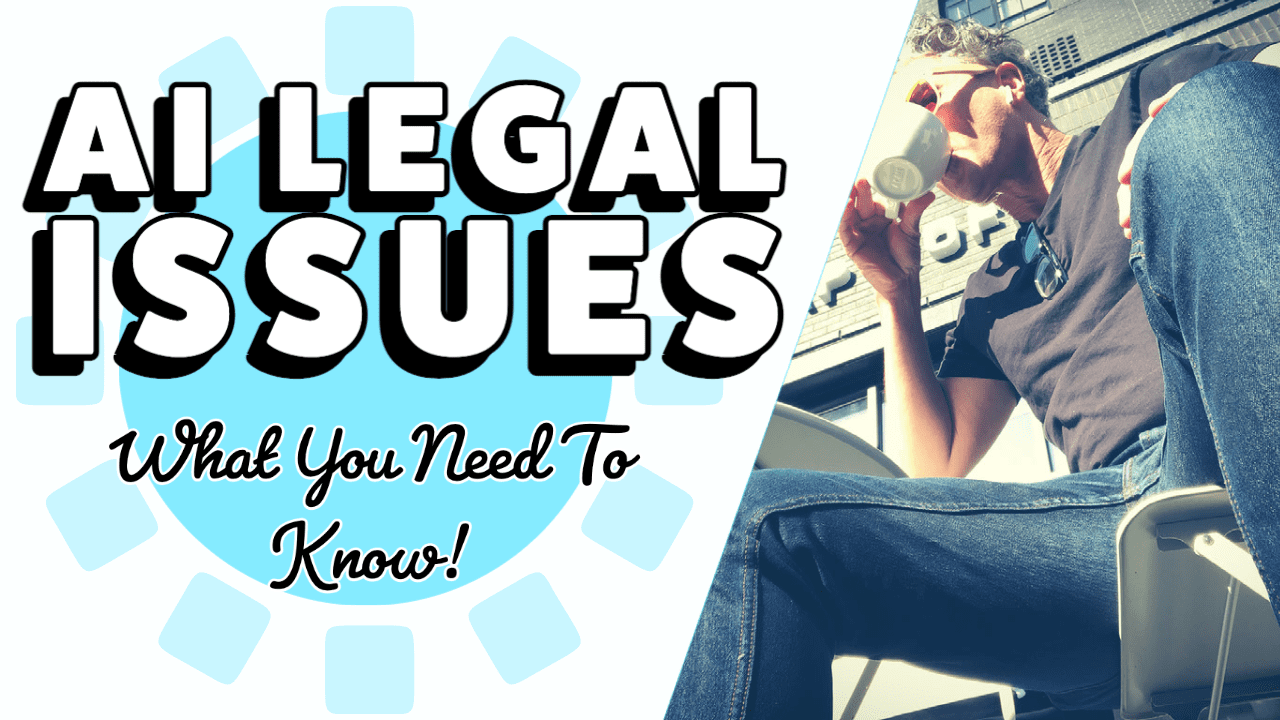Enrico Schaefer - March 2, 2023 - Artificial Intellience

I am an AI attorney representing AI companies. You are wondering what legal issues AI companies might face. I have developed a list of critical legal issues that all AI companies should consider before launching service-based software. Watch the video below, or read the article that follows.
GET IN TOUCH
In the video above titled “Critical Legal Issues Facing AI and Machine Learning Companies,” our AI attorneys outline the key legal considerations that AI companies must navigate before launching service-based software. These include securing intellectual property rights, understanding liability and responsibility, addressing potential biases and discrimination, and complying with complex regulations and standards. From copyright infringement lawsuits to ethical dilemmas and regulatory compliance, the video provides a comprehensive overview of the legal landscape that shapes the AI and machine learning industry, emphasizing the need for transparency, accountability, and ethical development. Here is s summary of the topics covered in this video.
Consideration should be given to securing intellectual property rights such as patents, trademarks, copyrights, or trade secrets for any AI algorithm or software developed. Companies’ data set to build their platform might be copyright protected. We are already seeing copying infringement lawsuits against AI companies based on the data they have included in their learning models.
Companies must also be aware of data protection laws and ensure compliance with data privacy regulations, including the GDPR or CCPA, especially where personal data is being processed. An AI usage policy must address security and privacy issues specific to your organization.
AI systems can cause harm, and therefore companies should consider the potential risks involved, including any harm that may result from an artificial intelligence system’s failure or misuse. Companies must consider legal responsibility for any harm or damage caused by their AI software, and insurance policies should be implemented to cover any potential liability. Every company which uses AI faces legal and liability risks that can be minimized with an AI use policy that evolves as your AI systems and processes evolve.
AI systems can perpetuate biases and discrimination if not developed unbiasedly.
The AI industry is already facing several ethical issues, including bias in the development of algorithms, privacy concerns, the potential for abuse by malicious actors and states, and transparency around how AI systems make decisions.
To address these issues, companies should take steps to understand and mitigate their biases during development. They should also consider what data they use for training purposes and whether ethical standards have collected it. Finally, companies must ensure clear policies around how their AI systems use personal information and what privacy protections are required by law.
AI companies must consider the regulatory landscape and ensure compliance with all relevant regulations and standards, including industry-specific regulations and standards such as those governing medical devices or financial services.
Companies must ensure their AI systems are transparent, explainable, and accountable, especially when making decisions affecting individuals or groups.
The development of artificial intelligence systems can be constrained by legal requirements that apply to an AI system’s design, development, deployment, and operation. These laws may require a company to obtain specific permissions before deploying an AI system; they may impose restrictions on how an AI system can be used or require companies to take steps to protect individuals’ privacy or other rights.
In the evolving field of AI-as-a-service, legal considerations take center stage, particularly when it comes to drafting AI-specific website agreements. Tailoring terms of service and privacy agreements to the unique characteristics and challenges of AI is not just a legal necessity but a strategic imperative. These agreements must reflect the dynamic nature of AI, addressing specific concerns such as data usage, algorithm transparency, potential biases, liability, and privacy protections. By crafting AI-specific agreements, artificial intelligence and machine learning service and platform companies not only ensure legal compliance and legal risk reduction, but also build trust and transparency with users.
Together, these AI-specific agreements form the legal foundation of the relationship between AI-as-a-service companies and their users, addressing the unique challenges posed by AI technology and ensuring a transparent, responsible, and legally compliant operation.
An AI usage policy is an essential document that guides how artificial intelligence (AI) technology is to be used within an organization. This policy outlines the rules, responsibilities, and ethical guidelines to ensure that AI is used to align with the organization’s values, legal obligations, and business goals. An AI usage policy is step one for every organization whose employees use AI or want to develop AI solutions. Every company needs an AI use policy for its corporate governance and fiduciary obligations.
An AI usage policy is not merely a regulatory compliance document but a roadmap for the responsible and strategic use of AI within an organization. Regardless of its size or industry, every company that is engaged in or planning to engage in AI-related activities must have a robust AI usage policy. Such a policy protects the organization’s legal interests, fosters innovation, ensures ethical conduct, and helps fulfill corporate governance and fiduciary obligations.
By providing clarity and direction, an AI usage policy empowers organizations to leverage AI’s immense potential while managing the associated risks and responsibilities.